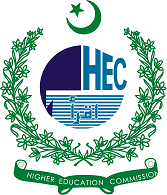Power and Paradox: PTI’s Contentious Engagement with Pakistan’s Institutional Pillars (2018–2022)
DOI:
https://doi.org/10.58932/MULA0054Keywords:
Civil-Military Relations, Pakistan Tehreek-e-Insaf-PTI, Military Establishment, Evolutionary Dynamics, Institutional PillarsAbstract
For decades, Pakistan's political dynamics have been shaped by the relationship between the elected civilian government and the state’s other institutions, a cornerstone of the country's political direction. The struggle for political dominance among various entities has also impacted political parties' policies. The most contemporary circumstance of such a battle is the case of Pakistan Tehreek-e-Insaf (PTI), which emerged as a populist force under Imran Khan's leadership in 2018, but its clash with the state’s institutions erupted in 2022. PTI initially benefitted from the state’s institutional patronage, gaining credibility and influence. However, this relationship was strained by policy failures, including economic difficulties and other governance issues, which caused the institutions to withdraw their support, contributing to PTI's decline. This research explores the PTI's track, focusing on the challenges of maintaining civilian government and the reliance on institutional and bureaucratic support. Adopting a descriptive approach of the qualitative method, the study draws on theories of civil-military relations and populism to evaluate tensions underlying PTI's shifting trajectory and analyse the contributing elements to PTI's ascent and subsequent decline. Authors of this article examined wider ramifications for Pakistan's political stability and democratic processes and analysed the discrepancies between PTI's political strategies, governance outcomes, and the institutions’ changing priorities based on national interest. The study ensures diverse insights into PTI's relationship with the state’s institutions and the broader political landscape.
References
Acemoglu, D., Egorov, G., & Sonin, K. (2013). A political theory of populism. Massachusetts Institute of Technology. https://economics.mit.edu/sites/ default/files/publications/A%20Political%20Theory%20of%20Populism.pdf
Al Jazeera. (2022, April 9). Pakistan PM Imran Khan gone after losing no-confidence vote. Al Jazeera. https://www.aljazeera.com/news/2022/4/9/pakistan-prime-minister-imran-khan-no-confidence-vote.
Ahmad, S., Ahmad, A., Shair, W., & Bhatti, M. A. A. (2022). Unlocking Pakistan's Youth Potential: A Comprehensive Analysis of Youth Development Indices and Strategic Alignment with the UN Sustainable Development Goals. Journal of Professional Research in Social Sciences, 9(2), 80-95.
Ali, I., & Sayeed, S. (2018, July 26). Pakistan's Imran Khan declares victory as rivals cry foul. Reuters. https://www.reuters.com/article/us-pakistan-election/pakistans-imran-khan-declares-victory-as-rivals-cry-foul-idUSKBN1KF32O.
Akbar, A., Ahmad, S., Nadim, M., Bhatti, M. A. A., & Khan, H. (2024). Affect of Hrm on Employee Motivation Towards Green Creativity and Initiatives. Center for Management Science Research, 2(3), 197-216.
Ahmad, S., Bhatti, M. A. A., & Imam, M. A. (2023). Balancing Control and Collaboration: Project Manager Accountability in Multi-Layered Governance Systems. Journal of Professional Research in Social Sciences, 10(2), 134-155.
Akbar, A., Ahmad, S., Ali, M., Fayyaz, M. T., Ali, I., & Bhatti, M. A. A. (2024). Employee Development and Training: How HRM Helps in Staying Competitive in the Changing Market Condition. Al-Qanṭara.
Ahmad, S., Qamar, A. J., Bhatti, M. A. A., & Bashir, U. (2023). Integrating Islamic Ethics with Modern Governance: A Comprehensive Framework for Accountability Across Religious, Social, and Economic Dimensions. Al-Irfan, 8(15), 51-79.
Bashir, U., Saeed, S., & Abbas, S. K. (2020). Strategies for New Product Development in an Emerging Market. Advances in Social Sciences Research Journal, 7(4), 393-397.
Bhatti, M. A. A., & Nazir, M. U. (2024). The Impact of Project Process Management on Sustainable Project Success in the Construction Sector: The Moderating Role of Risk Management Practices. Bulletin of Business and Economics (BBE), 13(2), 1065-1072.
Chughtai, M. A., Bhatti, M. B. A., & Naqvi, I. H. Ethics before Trust in Organization Public Relationships (OPRs): A Review of Real Estate Organizations.
Bhatti, M. B. A., & Durrani, M. K. (2024). The effect of project managers’ competencies on project success with mediating role of project stakeholders’ engagement: A case of IT sector. Journal of Management Info, 11(1), 51-73.
Gazdar, H. (2011). Social protection in Pakistan: In the midst of a paradigm shift? CSP Research Report (Issue 13). Institute of Development Studies (IDS).
Ghaffar, M. A., Shair, W., Afzal, H., ul Hassan, R., & Bashir, U. (2024). Income and Income Aspiration: Exploring the Impact on Life and Financial Satisfaction. Journal of Economic Impact, 6(3), 257-263.
Haider, M. (2020, August 10). Pakistan's foreign policy: Between reality and rhetoric. The Diplomat.
Hussain, A. (2024, February 7). Pakistan’s election: Can the next government bring economic stability? Al Jazeera. https://www.aljazeera.com/economy/2024/2/7/pakistans-election-can-the-incoming-government-bring-economic-stability.
Hussain, M. (2022, April 15). Pakistan's military cracks down on PTI leaders. The News International.
Hussain, S., Aqeel, M., Muhammad, H., Khan, A. R., & Asghar, M. M. (2021). Pakistan Tehreek-e-Insaf government policies for socioeconomic uplift of Pakistanis: A study of public perception and satisfaction. Bulletin of Business and Economics, 10(1), 84–98.
Husain, I. (2018). Pakistan’s economy and regional challenges. International Studies, 55(3), 253–270. https://doi.org/10.1177/0020881718796041.
Jaffery, S. A. Z. (2022). Pakistan's foreign policy under Imran Khan. In Pakistan's foreign policy (1st ed., pp. 26). Routledge. https://doi.org/10.4324/9781003250920.
Jawad, S., Naveed, H., & Akram, M. B. (2020). Academic Performance of Enrolled Students in the University of Lahore, Pakistan. Quest Journal of Management and Social Sciences, 2(2), 357-365.
Bhatti, M. B. A., & Khan, M. K. (2024). Implications of Project Managers’ Competencies on Project Success Moderating effect of Project Risk Management: A case of IT Sector in Lahore. Pakistan Journal of Multidisciplinary Research, 5(1), 66-85.
Jalal, A. (2014). The struggle for Pakistan: A Muslim homeland and global politics. Harvard University Press.
Janjua, R. W. (2021). Civil-military relations in Pakistan–Quest for an ideal balance. IPRI Journal, 21(1), 1–26. https://doi.org/10.31945/iprij.210101.
Javid, H. (2019). Patronage, populism, and protest: Student politics in Pakistani Punjab. South Asia Multidisciplinary Academic Journal, (22). https://doi.org/10.4000/samaj.6497.
Khan, I. (2022, April 10). Imran Khan accuses military of conspiring against him. Dawn.
Khan, I., Farmanullah, & Khan, R. (2022, June). The continuation of democracy in Pakistan: An analysis of 2018 general elections. Global Political Review, 7(2), 55–65. http://dx.doi.org/10.31703/gpr.2022(VII-II).05.
Khan, S. (2020, September 15). Pakistan's COVID-19 response: A military-led approach. The Diplomat.
Krishnarao, B. (1961). The descriptive method in social research. Sociological Bulletin, 10(2), 46-52. https://doi.org/10.1177/0038022919610204 (Original work published 1961).
Laporte, R., & Ahmed, M. B. (1990). Public enterprises in Pakistan: The hidden crisis in economic development. Routledge.
Lutterbeck, D. (2011). Civil-military relations. In Arab uprisings and armed forces: Between openness and resistance (Vol. 2, pp. 8–19). Ubiquity Press. http://www.jstor.org/stable/j.ctv6zdb3t.4.
Malik, A. (2020, October 20). Pakistan's strategic pivot to China and Russia. Middle East Institute.
Nawaz, S. (2024). Military influence and political peril in Pakistan. East Asia Forum. https://doi.org/10.59425/eabc.1704535220.
Reuters. (2021, October 26). Pakistan appoints new spy chief after weeks of delay. https://www.reuters.com/world/india/pakistan-appoints-new-spy-chief-after-weeks-delay-2021-10-26/.
Rafaqat, M. ., Azad, F. ., Ahmad, S. ., Aijaz, K. ., Ikram, S. H. ., Bashir, U. ., Bhatti, M. A. A. ., & Saeed, S. . (2024). Impact of Governance and Strategy Performance on Employer Branding. Research Journal for Societal Issues, 6(2), 852–867.
Rizvi, H. A. (2009). The military and politics in Pakistan: 1947–1997. Sang-e-Meel Publications.
Shair, W., Bano, S., Afzal, H., ul Hassan, R., & Bashir, U. (2024). Well-Being Dimensions and Environmental Protection: The Role of Health, Life Satisfaction, and Financial Satisfaction. Policy Journal of Social Science Review, 2(4), 783-802.
Shah, A. (2019). Pakistan: Voting under military tutelage. Journal of Democracy, 30(1), 128–142.
Shah, S. (2022, April 12). Pakistan's military denies involvement in Imran Khan's ouster. The Express Tribune.
Shafqat, S. (2020). Pakistan's political parties: Surviving between dictatorship and democracy. Routledge.
Siddiqa, A. (2021). Imran Khan and the generals. Diplomat.
Talbot, I. (1998). Pakistan: A new history. Hurst & Company.
Weinbaum, M. G., & Sulehria, N. A. (2023). Pakistan’s establishment closing the curtain on Imran Khan and his party. Middle East Institute.
Wolf, S. O. (2021). Pakistan's civil-military relations: A case study of the PTI government. Journal of Asian Security and International Affairs, 8(2), 147–165. https://doi.org/10.1177/23477970211037042.
Wolf, S. O. (2022). Pakistan's civil-military relations: The fallout from PTI's ouster. Journal of Asian Security and International Affairs, 9(1), 1–15.
Yilmaz, I., & Shakil, K. (2021). Pakistan Tehreek-e-Insaf: Pakistan’s iconic populist movement. European Center for Populism Studies.
Zaidi, A. S. (2015). Issues in Pakistan's economy: A political economy perspective (3rd ed.). Oxford University Press.




